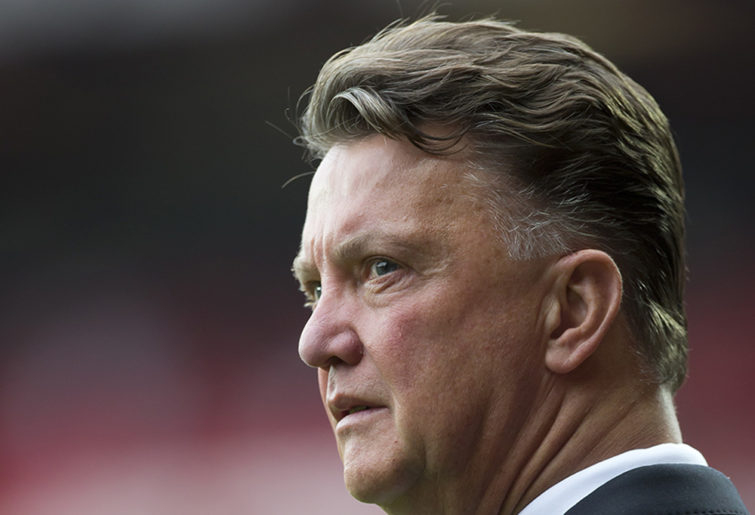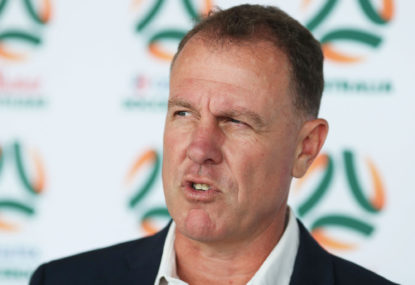Australia’s football coaching stocks have probably never been higher.
Ange Postecoglou’s successes in Japan and now at Celtic in Scotland have put Australia on the map. Alen Stajcic’s recent success at the Philippines and his long-time tenure with the Matildas also caught the eye of other nations.
The likes of Kevin Muscat (Yokohama), Joe Montemurro (Juventus), David Zdrilic (Genoa) and Aaron D’Antino (Arsenal) are all Aussie coaches doing well abroad.
But there is still a school of thought that we need to re-engineer the way coaches are developed in Australia. While FFA attempts to fast track ex-players into coaching talent pools, many feel this is not necessarily the right approach.
So where do we find the best coaches and how do we develop them?
There is a strong argument that school teachers would be ideal candidates to step into coaching, considering a coach’s role is to educate, just like a teacher.
The challenge is that coaching at the highest level is a full-time occupation, which makes it harder for a person to juggle being a school teacher as well. But it isn’t impossible.
We should look for school teachers, not just ex-players, and help them transition into a new career.
Former Galaxy United VPLW coach Robert Casha believes the idea has merit.
“Coaches need to be looked at more as teachers,” says Casha. “A good coach needs to be selfless if he’s to coach youth, you get no thanks for it. Often you get ridiculed.
“But with results-driven Australia, we’ll never develop another decent batch of kids.”
There are some famous names in the world of football that started out as school teachers. Champions League, La Liga and Bundesliga winner Louis Van Gaal had a modest career as a footballer but took up PE teaching before sitting in the dugout of the world’s biggest clubs.

Louis van Gaal (AP Photo/Jon Super)
Legendary Dutch coach Rinus Michels was a PE teacher at a special needs school before winning four Dutch Eredivise titles, a European Cup and a La Liga title. At international level, he took Holland to the 1974 World Cup final and guided them to the 1988 European Championships crown.
The likes of Roy Hodgson, Jose Mourinho and Gérard Houllier were also in the classroom before taking charge at some of the biggest stadiums in the world.
Closer to home, Stajcic himself was a school teacher at Hills Sports High before taking up coaching full-time. Sydney FC A-League Women premiership-winning coach Ante Juric taught at Trinity Grammar for five years. Current Young Matildas coach Leah Blayney is also a teacher at the prestigious Westfield Sports High, an example of someone juggling both professions.
Former Socceroos coach Guus Hiddink was a PE teacher at a school for kids from disadvantaged backgrounds. Hiddink guided the Socceroos to their first World Cup in 32 years in 2006 and prior to that took Holland and South Korea to World Cup semi-finals.
“I think Hiddink did a good job,” says Casha. “The players liked him everywhere he went.”
If we think other sports, the legendary John Wooden, considered by many to be the greatest basketball coach of all time, was an English and PE teacher long before he won ten college championships with UCLA and coached future NBA Hall of Famers such as Kareem Abdul-Jabbar and Bill Walton.
In Australia, Carlton’s 1987 AFL premiership coach Robert Walls was a high-school teacher, as were legendary Hawthorn coaches Alastair Clarkson and John Kennedy, who have seven flags between them.
English rugby coach Eddie Jones was a teacher and a principal before coaching in the 2003 and 2019 World Cup finals.
“It is an interesting theory and one that is definitely worthwhile considering,” says veteran Sydney high school teacher and former junior soccer coach, Roshan Seneviratne. “Australian coaches tend to be ex-players who are pushed through the coaching system.
“A few become coaches within a few years of retiring. Logically this doesn’t make sense. Coaching is an art, not a transition.
“Logically it would take a coach years to learn their craft and understand the difference between playing and coaching.”
Some of the things a school teacher does would resonate with coaching. Discipline, using different styles, understanding your charges and their specific needs, session plans, research and the ability to transfer knowledge in a way that works for the person receiving that knowledge, are all key attributes to teaching.
While many coaches may be brilliant tactically or technically, the ability to make an impact on each individual in a large team is perhaps the greatest challenge.
“At the elite level, most players don’t need basic training on technique,” continues Seneviratne. “They need to know and understand how to get the best out of themselves and what role they need to play in their team.
“This is very much like a teacher in a busy classroom. How can he or she help their student hone and develop their talent, while ensuring they are part of a cohesive class?
“In football there are numerous egos at play. A bit like the kid who is a know-it-all. Then we have those who would much less train and prefer to party, sounds like the naughty kid in class. Then we have the talented player who is too quiet in the dressing room, a bit like the smart kid in class who is very shy. We have those who can influence their teammates, much like the cool kid in school with the big image.
“How does a coach manage all of them at the same time?”
Coaching at the grassroots and NPL levels comes under scrutiny, with FFA’s curriculum almost dictating how someone should coach. But a school teacher, who knows how to balance a curriculum and cater for individual and wider group needs, would perhaps be ideal to develop the next generation of footballers.































































































